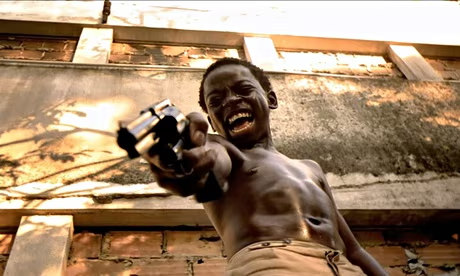
Fernando Meirelles is one of Brazil’s most celebrated filmmakers, known for his dynamic visual style, socially conscious storytelling, and ability to craft gripping narratives that resonate globally. Rising to international fame with City of God (2002), Meirelles has since established himself as a versatile director, working across genres and languages while maintaining a distinctive cinematic voice.
Early Career and Breakthrough
Born on November 9, 1955, in São Paulo, Brazil, Meirelles initially studied architecture at the University of São Paulo before transitioning into filmmaking. His early work included television commercials and music videos, where he honed his visual storytelling techniques. In the 1990s, he co-founded the production company O2 Filmes, which became a significant force in Brazilian cinema.
His feature debut, Maids (2001), co-directed with Nando Olival, was a dark comedy about two wealthy women and their maids, showcasing his sharp observational skills. However, it was his second film, City of God (2002), that catapulted him to global acclaim.
City of God: A Masterpiece of Crime Cinema
Based on Paulo Lins’ semi-autobiographical novel, City of God (2002) is a raw, kinetic portrayal of life in Rio de Janeiro’s violent favelas. The film follows multiple characters over decades, illustrating how crime and poverty shape their destinies.
Style and Impact
Meirelles employed a documentary-like aesthetic, using handheld cameras, natural lighting, and non-professional actors from the favelas to heighten realism. The editing (by Daniel Rezende) was frenetic, mirroring the chaotic energy of the streets. The film’s structure—told in fragmented, overlapping narratives—was both innovative and influential, drawing comparisons to Martin Scorsese’s Goodfellas.
City of God was a critical and commercial success, earning four Academy Award nominations, including Best Director for Meirelles. It also brought international attention to Brazilian cinema and inspired a wave of socially conscious crime films worldwide.
International Success and Diverse Projects
After City of God, Meirelles ventured into English-language films without losing his distinctive style:
- The Constant Gardener (2005) – A political thriller starring Ralph Fiennes and Rachel Weisz, based on John le Carré’s novel. The film tackled pharmaceutical corruption in Africa, blending intimate drama with global issues. Weisz won an Oscar for her performance.
- Blindness (2008) – A dystopian drama about a sudden epidemic of blindness, starring Julianne Moore and Mark Ruffalo. Though divisive, it showcased Meirelles’ bold visual approach.
- 360 (2011) – A multi-narrative drama exploring interconnected lives across continents, written by Peter Morgan.
- The Two Popes (2019) – A Netflix-produced drama about Pope Benedict XVI and the future Pope Francis (Anthony Hopkins and Jonathan Pryce). The film earned three Oscar nominations, including Best Adapted Screenplay.
Style and Themes
Meirelles’ films often explore:
- Social inequality (City of God, The Constant Gardener)
- Human resilience (Blindness, The Two Popes)
- Global interconnectedness (*360*)
His visual trademarks include:
- Handheld, immersive camerawork
- Naturalistic performances (often using non-actors)
- Fast-paced, non-linear editing
- Vibrant color palettes
Legacy and Influence
Meirelles’ impact extends beyond his films. He has mentored emerging Brazilian directors and advocated for diverse storytelling. City of God remains a landmark in world cinema, frequently studied for its technique and social commentary.
Though he works internationally, Meirelles maintains strong ties to Brazil, directing TV series like City of Men (a City of God spin-off) and Dois Irmãos (2017). His ability to balance artistic ambition with mainstream appeal makes him one of the most important filmmakers of his generation.
Conclusion
From the favelas of Rio to the Vatican, Fernando Meirelles has crafted films that are visually stunning, emotionally powerful, and socially relevant. His fearless storytelling and technical mastery ensure his place among cinema’s great auteurs. Whether exposing harsh realities or exploring profound human dilemmas, Meirelles continues to challenge and captivate audiences worldwide.
